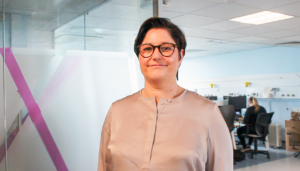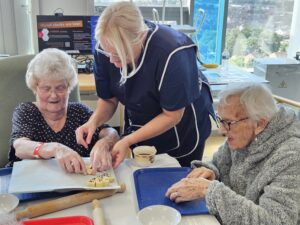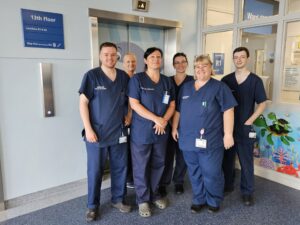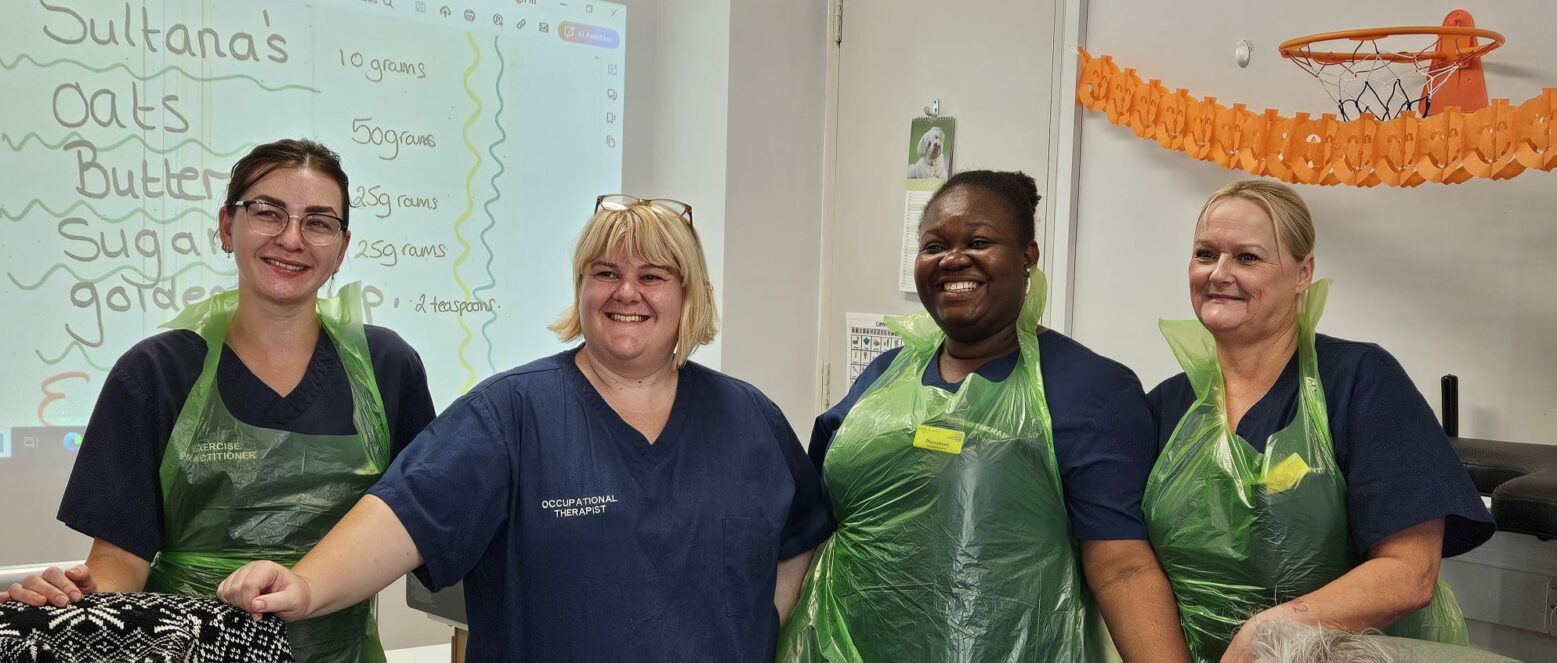Brunch club, balance class and a game of cards before lunch. You’d be forgiven for thinking you’d checked into a swanky hotel, but this is actually Hull Royal Infirmary.
In July 2024 the 13th floor – now informally dubbed ‘the Penthouse’ – was transformed into a reablement unit to support patients waiting to leave hospital.
In the face of ongoing pressure to admit acutely unwell patients, hospital staff were also experiencing difficulty discharging those who no longer needed medical care. There were many and varied reasons for this; sometimes patients were awaiting a residential place, others for a package of community care so they could continue living independently at home; but whatever the reason, for a cohort of patients which topped over 200 at one point, hospital was no longer the best place for them to be.

Rachel Kemp, Single Coordinator
Rachel Kemp, Single Coordinator for Hull and East Riding explains:
“Patients who are no longer in need of medical treatment often have to remain in hospital while they wait for packages of care or arrangements to be made for them to leave hospital.
“Demand for beds at Hull Royal is always high, but that pressure is made more acute when we have a lot of patients in hospital who actually have no further medical care needs but can’t leave, for whatever reason. For those patients, being in hospital is no longer the safest place to be, as their risk of infection is higher, and the risk of falls and deconditioning in older people particularly is much greater than if they were at home or in their own familiar surroundings.
“The 13th floor reablement unit was set up to bring all the various health and social care partners together to look at how we can best prepare these patients to leave hospital. It’s not just about getting the patient medically well enough to leave, it’s also about reducing the effects of deconditioning while they wait for their discharge arrangements to be progressed, and allowing the team to look at and address all their needs in readiness – how is their balance, can they prepare a meal or a cup of tea, do they need any special equipment, and so on.”

Promoting independence and motor skills in the unit’s baking group
Staff are cared for while they’re on the 13th Floor wards by a team of nursing staff with doctors’ input if required, but there’s a whole team of therapists and support staff waiting in the wings to get patients fit for discharge too.
From occupational therapists to physiotherapists, social workers to intermediate care support workers, the team use all their collective expertise to help patients become as independent as possible ahead of their discharge.
Rebecca Hardcastle, Clinical Lead Occupational Therapist explains:
“Our multi-disciplinary team does its utmost to promote mobility, balance, cognitive and motor skills among patients in readiness for their discharge home or to another place of care.
“Maximising patients’ independence using therapeutic interventions such as games and activities helps to reduce deconditioning while in hospital and instil confidence ahead of leaving the ward.
“In turn, those patients who are more independent; able to cook for themselves, move around and carry out basic daily living tasks; are less likely to require readmission due to a fall or malnutrition, for example.”
And there’s plenty on the daily activity menu to choose from. Therapists run regular breakfast and brunch clubs where patients are encouraged, with help if required, to walk to the therapy room and then make their own meal.
Therapists also run regular activity groups, including games such as cards and dominoes, designed to promote problem solving, planning and fine motor skills.

Members of the 13th floor Therapies Team
They offer exercise and balance groups where patients can improve their range of movement, balance and activity tolerance through games like skittles, darts, and basketball, or use of the parallel bars.
And for those less mobile, it’s cognitive games such as bingo, word-searches or the use of RITA, or bedside crafts such as jigsaws and colouring to promote brain function and stimulation.
“We try to make our activities as enjoyable and as sociable as possible, with everything from brunch clubs to baking sessions, basketball to games of bridge,” Rebecca continues.
“We even produce our own ‘Penthouse’ newspaper, and regularly encourage people to come together to watch and discuss key sporting events such as Wimbledon and the Olympics.
“Our patients regularly tell us they enjoy it so much here now that they don’t want to leave, which is a real compliment and testament to the hard work which all of our staff have put in to caring for our patients and improving flow through our hospitals.”
As well as the positive patient feedback, the numbers certainly stack up too. A one-week audit conducted by the Therapies team found that their interventions supported an improvement in patients’ functional dependence and mobility score of 253 points, with more than half of all patients (40 people) showing improvement across the whole of the 13th floor. The discharge plan score also improved by 65 points, with the team supporting 43 patients to return home and a further 8 to rehabilitation beds, representing almost six in every 10 patients (57%) that week.

